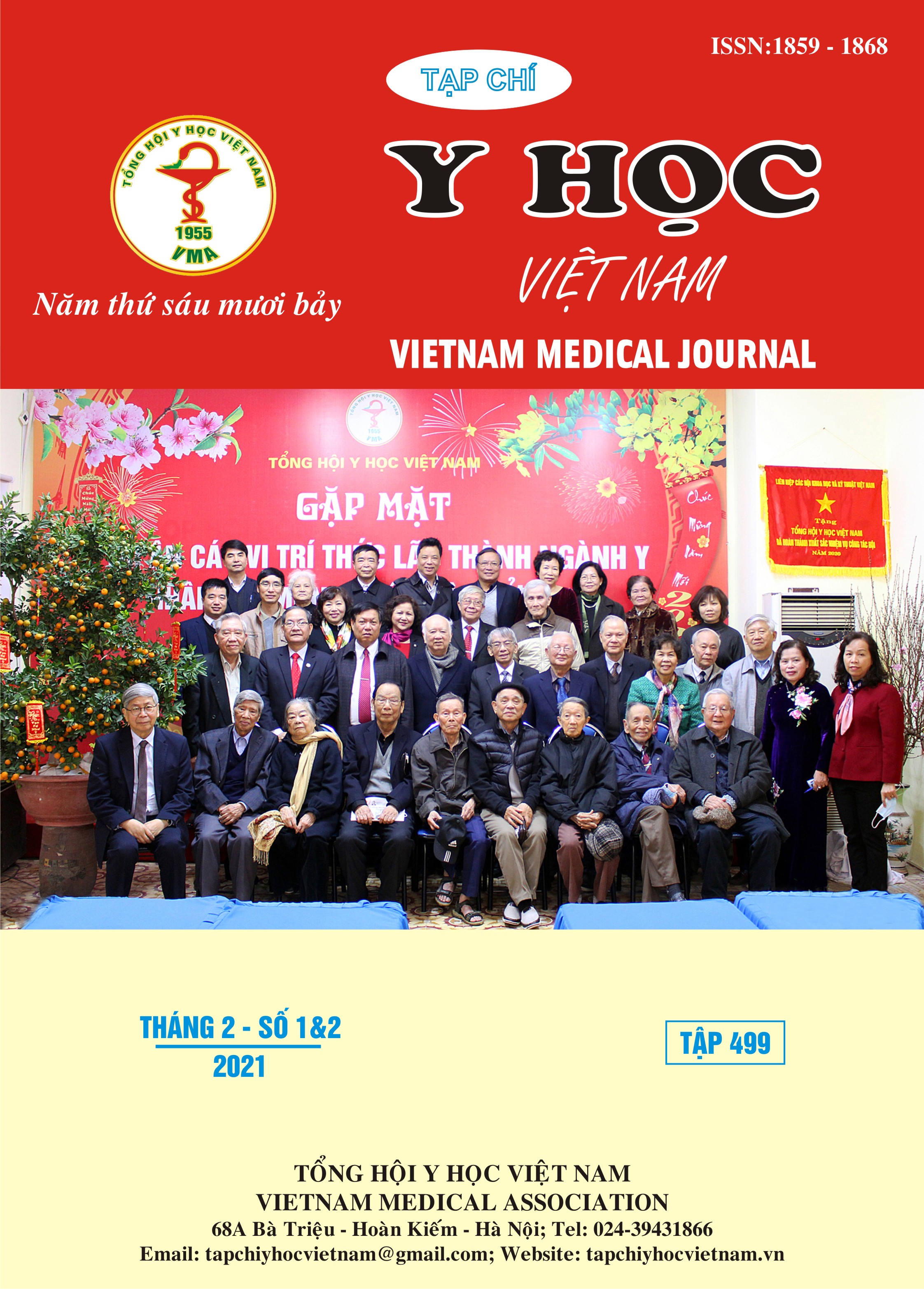CURRENT STATUS OF REFRACTORYGASTROESOPHAGEAL REFLUX DISEASEAND THE DEMAND FOR BUILDING MOBILE APPLICATION TO SUPPORT FOR MANAGEMENT
Main Article Content
Abstract
The survey was conducted from 4/2020 to 8/2020 to assess the current situation of refractory gastroesophageal reflux disease (GERD) and the need of using a mobile application (app) to support patients in GERD management. 101 doctors mainly from the internal medicine department in hospitals participated in the study, 97% of them have ever treated patients having gastroesophageal reflux disease, 88% of doctors have ever met patients who had refractory GERD. 71,7% of doctors reported the rate of refractory GERD in clinical practice is ≥10%. 100% of doctors agreed to develop a mobile application for GERD management. Combining with other medications, increasing the dose or switching to another PPI are the most common strategies for refractory GERD patients. The features that the doctors recommended for the app areinstructions on diet, daily activities, providing information about GERD, and buildingan interactive channel between doctors and patients.
Article Details
Keywords
gastroesophageal reflux disease, refractory GERD, mobile application, health information
References
2. Bộ Y Tế. Ứng dụng công nghệ thông tin hướng tới xây dựng nền y tế thông minh. 2019; Available from: https://moh.gov.vn/chuong-trinh-muc-tieu-quoc-gia/ /asset_publisher/ 7ng11fEWgASC/ content/ung-dung-cong-nghe-thong-tin-huong-toi-xay-dung-nen-y-te-thong-minh.
3. Đặng Thị Lõn, et al., Hình thái vùng nối dạ dày - thực quản và áp lực cơ thắt thực quản dưới bằng kỹ thuật HRM ở bệnh nhân có thoát vị hoành trượt trên nội soi. Tạp chí Y Dược học Lâm sàng 108 2020. 15(2).
4. Đào Việt Hằng and Hoàng Bảo Long, Bước đầu đánh giá kết quả đo pH-trở kháng 24 giờ ở bệnh nhân trào ngược dạ dày-thực quản kháng trị. Tạp chí nghiên cứu Y học, 2019. 119(3): p. 33-40.
5. Vakil, N., et al., The Montreal definition and classification of gastroesophageal reflux disease: a global evidence-based consensus. Am J Gastroenterol, 2006. 101(8): p. 1900-20; quiz 1943.
6. Fock, K.M., et al., Asia-Pacific consensus on the management of gastro-oesophageal reflux disease: an update focusing on refractory reflux disease and Barrett's oesophagus. Gut, 2016. 65(9): p. 1402-15.
7. Mermelstein, J., A. Chait Mermelstein, and M.M. Chait, Proton pump inhibitor-refractory gastroesophageal reflux disease: challenges and solutions. Clin Exp Gastroenterol, 2018. 11: p. 119-134.
8. El-Serag, H., A. Becher, and R. Jones, Systematic review: persistent reflux symptoms on proton pump inhibitor therapy in primary care and community studies. Aliment Pharmacol Ther, 2010. 32(6): p. 720-37.
9. Mermelstein, J., A.C. Mermelstein, and M.M. Chait, Proton pump inhibitors for the treatment of patients with erosive esophagitis and gastroesophageal reflux disease: current evidence and safety of dexlansoprazole. Clin Exp Gastroenterol, 2016. 9: p. 163-72.


